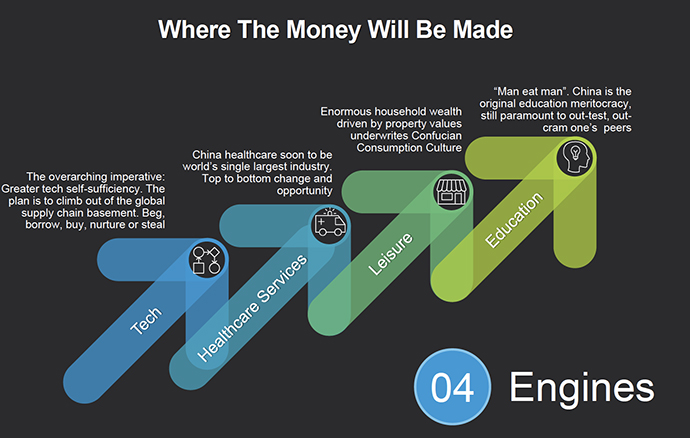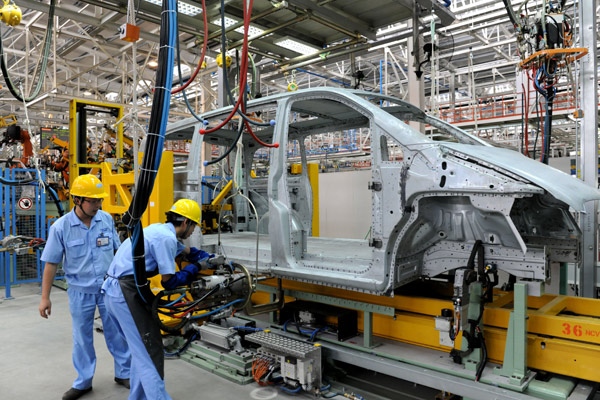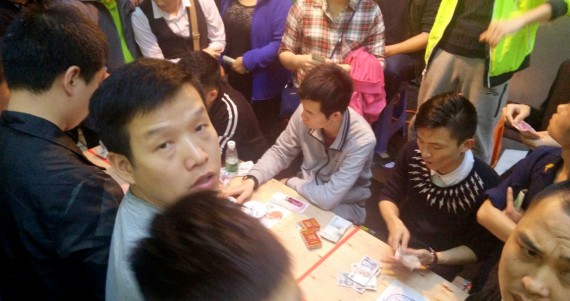Adviser Banks Forced to Hold Stakes in IPOs on China Startup Board — Nikkei Asian Review

HONG KONG —
Investment banks bringing companies to list on China’s new board for technology startups are facing an unusual requirement: they will have to keep some of the shares for themselves.
The Shanghai Science and Technology Innovation Board marks a major experiment in the reform of China’s capital markets.
Chinese President Xi Jinping announced plans in November for a Nasdaq-style board for young tech startups, and it is expected to be operational later this year. It aims to attract young companies with fewer regulations and reporting requirements and, unlike China’s main markets, there are to be no limits on pricing and first-day trading movements.
Also unlike the country’s existing boards in Shanghai and Shenzhen, companies that list do not have to be profitable. In some cases, the tech board will not even require companies to have generated revenue.
The board signifies the realization of long-discussed plans to move from a system where Chinese regulators carefully review every applicant and maintain tight control over the flow of listings — leading to a backlog of hundreds of companies waiting years for an official nod — to a more market-driven system like that of major foreign exchanges.
The requirement that underwriters take a stake in initial public offerings, first flagged by officials last month, is an indicator of the authorities’ caution; members of the Chinese financial community say the stakeholding requirement is intended to insure underwriters bring only the companies in which they have confidence to market.
“Having lowered profitability requirements, it further makes sense to have sponsors with skin in the game,” said Brock Silvers, managing director of investment company Kaiyuan Capital in Shanghai.
Executives with two Chinese financial companies said the minimum stake will be “a low single-digit” percentage of the IPO. A lock up rule will block the underwriters from selling their shares within two years of the IPO. The rules have yet to be formally issued.
Victor Wang, executive director of financial sector research at China International Capital Corp., the country’s largest investment bank, said it is still unclear how the stakeholding requirement will be shared among different investment banks involved in an IPO. But the logic is, “if you don’t focus on quality and recommend some low-quality companies, you own money will be lost,” he
said.
China Merchants Securities, which is sponsoring two companies preparing to list on the new board, declined to comment about the new rule. However, a local broker, who had not heard of it before, said he was not surprised at the requirement.
“China’s financial legal framework is not flawless and officials at the China Securities Regulatory Commission cannot completely trust sponsors’ due diligence work,” he said. “After all, there have been IPO frauds before. It is no surprise if regulators want some level of assurance by having brokers to share risks.”
Some market observers are wary of the consequences, however.
“The intention is a good one but once again investors are not being forced to make their own decisions and analysis,” said Fraser Howie, a veteran broker and co-author of three books on Chinese financial markets. “By forcing the (investment bank) to come in on every deal, it effectively tells investors, ‘Don’t worry. You don’t need to think for yourselves’.”
Howie also sees the rule as problematic for the banks. “The investment bank’s job is to bring a company fairly to market,” he said. “I think this (rule) conflicts with this. To me, they are creating a needless conflict of interest and additional risk for the bank.”
The burden of the requirement will favor larger investment banks, in the view of Yang Yingfei, a partner handling IPOs at Baker McKenzie FenXun Joint Operation Office in Beijing.
“Sponsors that are relatively stronger overall will become more competitive, whereas small and medium-sized securities firms may gradually lose the ability to sponsor tech board enterprises,” she said. “The effect of concentration in the sector will become conspicuous.”
Though the Innovation Board’s approach is unusual, other market regulators have also been wrestling with the question of how to ensure that underwriters take responsibility for companies they bring to market.
Last month, the Securities and Futures Commission of Hong Kong reprimanded and fined UBS, Merrill Lynch, Morgan Stanley and the securities arm of Standard Chartered Bank over their handling of IPOs.
UBS received the heaviest penalty, a fine of 375 million Hong Kong dollars ($47.78 million) and a one-year suspension from sponsoring listings on the Hong Kong market. The SFC said the bank had failed to confirm the existence of key claimed assets and customers of China Forestry Holdings before bringing it to market in 2009 and found problems with its work on two other IPOs.
China Forestry raised $216 million in its IPO but its shares stopped trading in 2011 after its auditor reported the discovery of accounting irregularities.
Preparations for the Shanghai Innovation Board have moved unusually quickly since it was first mooted in November. The authorities are keen to have “unicorns” — unlisted startups valued at $1 billion or more — list on domestic markets rather than offshore. After several abortive efforts, they are hoping they have created an attractive alternative at last.
As of yet, the country’s most valuable companies, online services companies Alibaba Group Holding and Tencent
Holdings, are listed in New York and Hong Kong, respectively.
“There are certainly signals that the tech board’s IPO procedures will be more market-driven, with a less onerous process of CSRC approval and monitoring,” said Peter Fuhrman, chairman of investment bank China First Capital in Shenzhen. “That should be a positive development.”
Nine companies are set to launch on the new board as soon as June, but none are unicorns; combined, they are expected to raise only about $1.6 billion. Financiers say bigger startups are waiting for the board to work through its initial launch pains before moving forward themselves.
One Hong Kong-based banker who works with mainland Chinese companies said “a lot” of his clients were waiting in the wings.



































